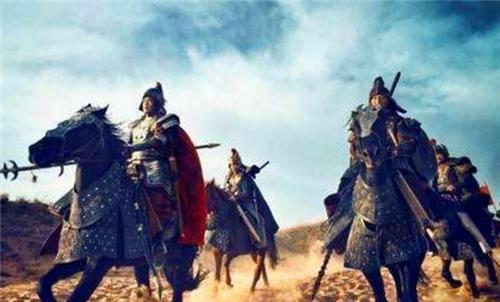In ancient history, there are many characters who died young, they could have had a greater role, but they stopped in the middle of the way, and Huo's disease should also be one of the most regrettable.
As the nephew of the famous general Wei Qing and the elder brother of Huo Guang, Huo Wentyi was also loved by Emperor Wu of Han and Wu, and at the age of 17, he was granted the post of Lieutenant of Yao, but Huo Wentyi used his own skills to prove the reward of trust in Emperor Wu of Han, and when he first went out on the expedition, he led eight hundred cavalry deep into the desert, captured 2028 enemies, captured Shan Yu's uncle Luo Gubi, and was named the Champion Hou.

And at the age of 19, Huo Wentai served as the commander of the Han Army, commanded two battles in Hexi, and finally successfully annihilated and recruited the main force of the Xiongnu 100,000 people, directly taking the Qilian Mountains where the Xiongnu center is located, which has a far-reaching impact on Chinese civilization, the Central Plains forces entered the Hexi Corridor for the first time, it is worth mentioning that Huo Wentyi also laid down 4 cities, took 4 domineering names, and has never changed its name since then, the name is very familiar, is there your hometown? Let's take a look!
The first is the famous tourist attraction in Gansu, Dunhuang, which was once the stronghold of the Xiongnu, known as "more than 300,000 people who control the strings", but then it was captured by the Han army, and has since become an important transportation route on the Silk Road. The Book of Han and Geography says: "Dun, Daye. Huanghuang, Shengye", taken together, are prosperous and grand cities, for which the "Yuanhe County Atlas" has a further explanation: "Dun, Daye, for its wide opening of the western region, so it is famous." ”
Since the Sui, Tang and Western Xia Dynasties, Dunhuang has integrated the cultures of multiple ethnic groups, further carried forward and become a local Buddhist culture with quite characteristics, and the Mogao Grottoes and Crescent Spring have become the most famous attractions today.
The second city, Zhangye, during the Xia Shang period, once belonged to the territory of Yongzhou in the "Yugong", the Yueshi state in the early Han Dynasty had established a prosperous and famous here, and with the xiongnu becoming strong and defeating and driving out the Yueshi, it became the territory of the Xiongnu Right Sage King, and in 121 BC, Huo went ill and defeated the Xiongnu, and finally the two kings of Hun evil and Xiu Tu led the people back to Han. In order to further consolidate the power here, ten years later, the Han Dynasty set up Zhangye County here. Take the meaning of "Zhang Guo's arm tucked in order to pass through the western region",
The third city of Wuwei, known as "the world to rush, the national guard", but also in 121, after Huo went to defeat the Xiongnu, here became one of the four counties of the Hexi Corridor, in the original Xiongnu Hutu King territory set up Wuwei County, to show the Han Empire's martial arts military might, and here as the Silk Road from east to west into the Hexi Corridor gate, east Dalanzhou, south of Xining, ancient times has been a military town, you can understand why this name will be so domineering.
The last city Jiuquan, probably many people concerned about the aerospace industry will often hear its name, as the cradle of modern aerospace, Jiuquan is also the birthplace of China's important oil industry and nuclear industry, about the origin of the name of Jiuquan, it is said that Huo went to the disease to march into Hexi, expelled the Xiongnu from the Yumen Pass, the happy Emperor Wu of Han then gave the imperial wine an altar, and the soldiers ate and lived with Huo to go to the disease, decided to put the Tianzi imperial wine, drink with the three armies, but there are more monks and less porridge, how to be good? In the end, he took a very romantic approach, pouring this altar wine into the spring water, and leaning down with the sergeant to taste it, and the "wine spring" was obtained.